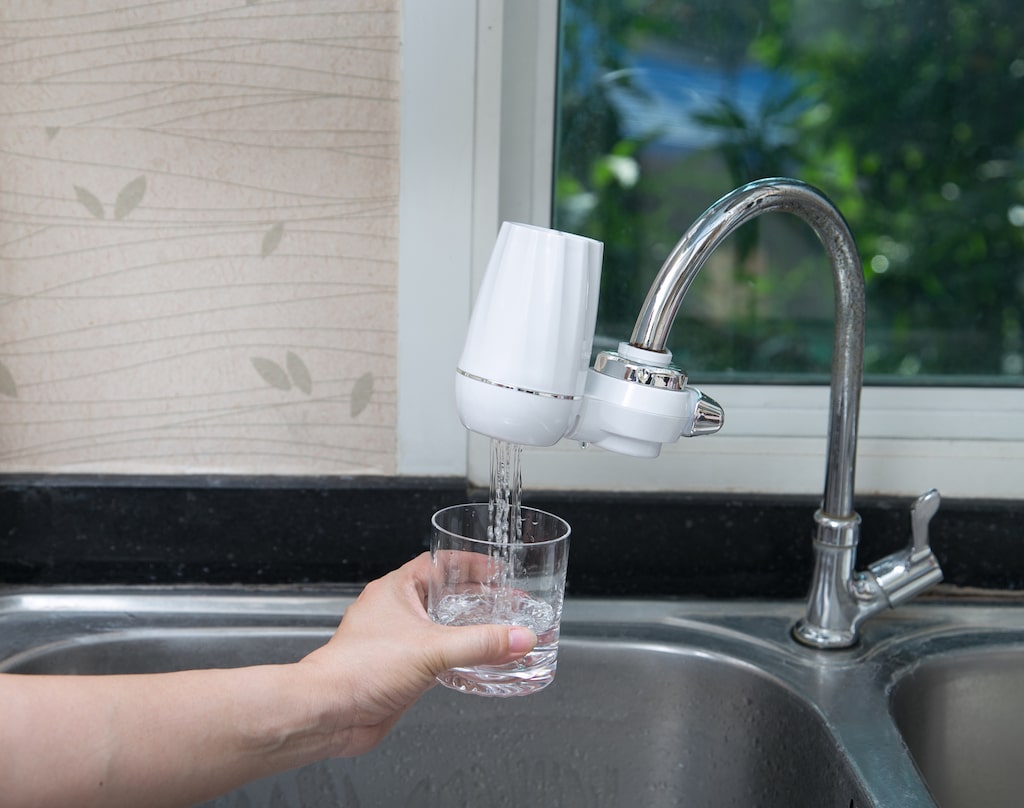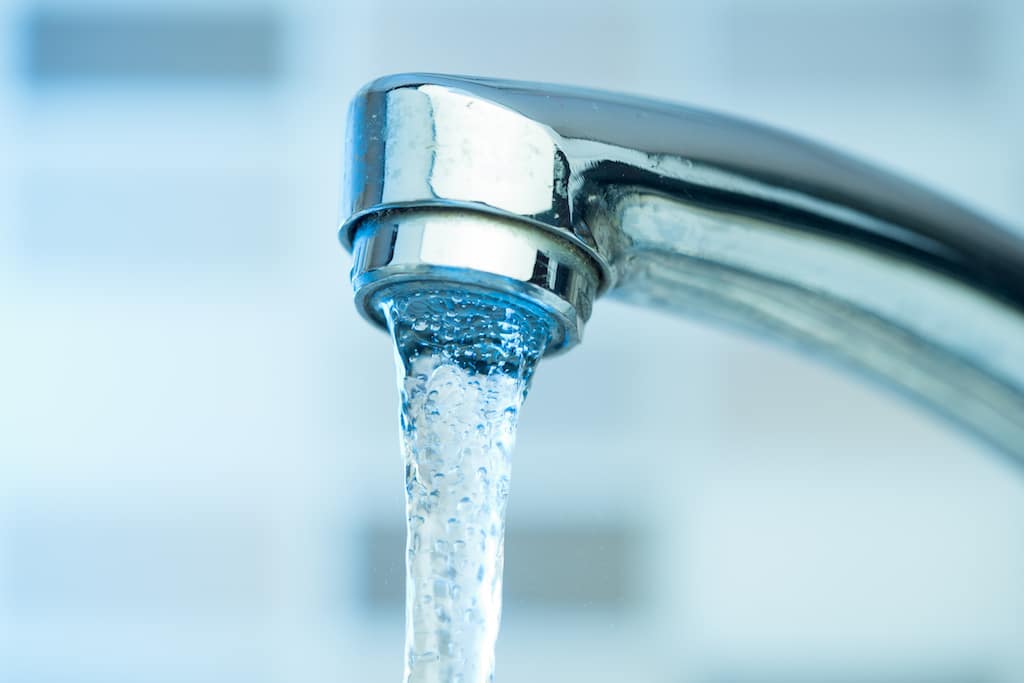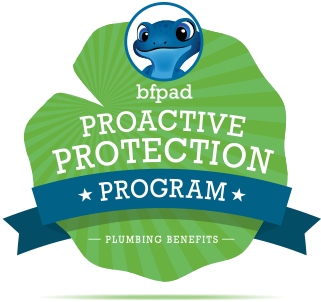
How to Choose the Right Water Filter
Before selecting a water filter, it’s crucial to understand the quality of your water. Knowing your water’s composition helps you choose the most effective filtration system.
Testing your water is the first step. Many contaminants can affect water quality, including lead, chlorine, pesticides, and bacteria. Home testing kits are available for a quick analysis, or you can hire a professional for a more detailed report.
Once you have the test results, identify common contaminants in your water. This knowledge guides you in selecting the right water filter. For example, if your water contains high levels of chlorine, a filter that excels in removing chlorine will be necessary.
Understanding your water quality also involves considering your water source. Is it from a well, a municipal supply, or another source? Each source has unique characteristics and potential contaminants.
Local environmental factors can also influence water quality. For instance, agricultural runoff can introduce pesticides into your water supply, while old pipes might leach lead or other metals.
The importance of understanding your water quality cannot be overstated. It ensures that you invest in a water filter that addresses your specific needs, providing safe and clean water for you and your family.
Importance of Testing Your Water
Have you tested your water recently? Testing your water is a crucial step in ensuring its safety and quality. Knowing what’s in your water helps you choose the right filter to address specific contaminants.
Why Test Your Water?
Testing your water reveals the presence of contaminants. These can range from harmful bacteria and viruses to chemicals like chlorine and lead. Even if your water looks and tastes fine, invisible pollutants could pose health risks.
Types of Water Tests
There are several ways to test your water:
- Home Test Kits: These are convenient and affordable. They provide quick results for common contaminants.
- Professional Laboratory Tests: For a more comprehensive analysis, consider sending a sample to a certified lab. This option is more expensive but offers detailed results.
- Municipal Water Reports: If you’re on a public water system, annual water quality reports are available. These reports detail the contaminants found in your water supply.
What to Look For in Test Results
When reviewing your test results, focus on the levels of contaminants present. Common contaminants include:
- Lead: This can cause serious health issues, especially in children.
- Chlorine is used to disinfect water but can cause an unpleasant taste and odor.
- Nitrates often found in agricultural areas, can be harmful to infants.
- Bacteria indicates possible contamination from sewage or animal waste.
Interpreting Your Results
Understanding the significance of your test results is vital. Compare the levels of contaminants to the guidelines set by the Environmental Protection Agency (EPA). The EPA provides maximum contaminant levels (MCLs) for various substances in drinking water.
Taking Action
If your test results indicate high levels of contaminants, it’s time to take action. Selecting a water filter designed to remove those specific contaminants is essential. For example, if lead is detected, a filter certified to remove lead will be necessary.
Regular testing and monitoring of your water quality ensure ongoing safety. Make it a habit to test your water annually or whenever you notice changes in taste, color, or smell.
Common Contaminants in Water
Ever wondered what’s lurking in your water? Understanding common contaminants can help you choose the right water filter to ensure your water is safe and clean.
- Lead
Lead is a dangerous contaminant often found in older plumbing systems. It can cause severe health issues, particularly in children, affecting brain development and leading to other serious conditions. Filters certified to remove lead are essential if your water tests positive for this metal.
- Chlorine
Chlorine is commonly used to disinfect municipal water supplies. While it effectively kills harmful pathogens, it can leave your water with an unpleasant taste and odor. Long-term exposure to high levels of chlorine can also pose health risks. Activated carbon filters are excellent for removing chlorine from your water.
- Pesticides
Pesticides can enter water supplies through agricultural runoff. These chemicals can pose health risks, especially with long-term exposure. If your water source is near agricultural areas, testing for pesticides is crucial. Filters with activated carbon or reverse osmosis systems can effectively remove these contaminants.
- Nitrates
Nitrates are another common contaminant from agricultural activities. High nitrate levels in drinking water can be harmful, particularly to infants and pregnant women. Reverse osmosis filters are highly effective in removing nitrates.
- Bacteria and Viruses
Microbial contaminants like bacteria and viruses can cause gastrointestinal illnesses and other health problems. These contaminants often enter water supplies through sewage contamination or animal waste. Ultraviolet (UV) filters and reverse osmosis systems are effective in eliminating bacteria and viruses.
- Arsenic
Arsenic is a naturally occurring element that can contaminate groundwater. Long-term exposure to arsenic can lead to serious health issues, including cancer. Specialized filters, such as reverse osmosis systems, are necessary to remove arsenic from water.
- Heavy Metals
Heavy metals like mercury, cadmium, and chromium can contaminate water through industrial pollution. These metals can cause various health problems, including kidney and liver damage. Filters with activated carbon and reverse osmosis technology can effectively remove heavy metals.
- Fluoride
While fluoride is added to public water supplies to prevent tooth decay, excessive fluoride can lead to health issues like dental fluorosis. If you prefer to reduce fluoride levels, consider a reverse osmosis filter.
Types of Water Filters
Choosing the right water filter can be overwhelming. Let’s explore the different types of water filters to help you find the best one for your needs.
- Pitcher Filters
Pitcher filters are popular for their convenience and affordability. They use activated carbon to remove impurities like chlorine, improving taste and odor. Simply fill the pitcher with tap water, and the filter does the rest. Ideal for small households, pitcher filters are portable and easy to use.
- Faucet-Mounted Filters
Faucet-mounted filters attach directly to your faucet, providing filtered water on demand. They effectively reduce contaminants like lead, chlorine, and some pesticides. These filters are easy to install and switch between filtered and unfiltered water with a simple lever. They’re great for kitchens and bathrooms.
- Under-Sink Filters
Under-sink filters are installed beneath your sink and connected to your water supply. These systems offer high filtration capacity and often include multiple stages of filtration, such as activated carbon and reverse osmosis. They effectively remove a wide range of contaminants, providing clean water directly from your tap.
- Countertop Filters
Countertop filters sit on your counter and connect to your faucet with a hose. They are easy to install and provide a higher filtration capacity than pitcher filters. Countertop filters are suitable for those who want a more robust filtration system without the hassle of under-sink installation.
- Reverse Osmosis Systems
Reverse osmosis (RO) systems are highly effective at removing a wide variety of contaminants, including heavy metals, nitrates, and bacteria. They use a semipermeable membrane to filter out impurities, providing exceptionally clean water. RO systems are typically installed under the sink and require more maintenance than other types.
- Whole-House Filters
Whole-house filters are installed at the main water line entering your home, ensuring that all the water in your house is filtered. These systems are ideal for removing sediment, chlorine, and other contaminants from your entire water supply. They are a good choice for families with multiple water-using appliances and concerns about overall water quality.
Comparing Water Filter Technologies
Selecting the right water filter involves understanding various technologies available. Let’s compare the most common water filter technologies to help you make an informed choice.
- Activated Carbon Filters
Activated carbon filters are highly effective at removing impurities. They use a process called adsorption, where contaminants adhere to the carbon surface. These filters excel at removing chlorine, pesticides, and volatile organic compounds (VOCs). They also improve the taste and odor of water. Activated carbon filters are commonly found in pitcher, faucet-mounted, and under-sink filters.
- Ceramic Filters
Ceramic filters use a fine pore structure to physically block contaminants. They are excellent for removing bacteria, cysts, and sediment. Some ceramic filters are impregnated with silver to enhance their antibacterial properties. These filters are durable and can be cleaned and reused. Ceramic filters are often used in countertop and gravity-fed filter systems.
- Reverse Osmosis (RO)
Reverse osmosis filters use a semipermeable membrane to remove a wide range of contaminants, including heavy metals, nitrates, and bacteria. The RO process involves forcing water through the membrane, leaving impurities behind. RO systems provide highly purified water but require more maintenance and can produce wastewater. They are typically installed under the sink.
- Ultraviolet (UV) Filters
Ultraviolet filters use UV light to kill bacteria and viruses in the water. This technology is chemical-free and effective at disinfecting water. UV filters do not remove chemical contaminants or sediment, so they are often used in combination with other filtration methods. They are ideal for homes relying on well water or other sources susceptible to microbial contamination.
- Ion Exchange Filters
Ion exchange filters are effective at removing hardness-causing minerals like calcium and magnesium. They work by exchanging these minerals with sodium or potassium ions. This technology is commonly used in water softeners to prevent scale buildup in pipes and appliances. Ion exchange filters can also remove certain heavy metals, such as lead.
Benefits of Using a Water Filter
Are you aware of the numerous benefits a water filter can bring to your home? Installing a water filter offers a range of advantages, from improved taste to significant health benefits.
- Improved Taste and Odor
Filtered water tastes and smells better. Many contaminants, like chlorine and sulfur, can cause unpleasant tastes and odors. A water filter removes these impurities, providing you with clean, refreshing water that encourages you to drink more and stay hydrated.
- Removal of Harmful Contaminants
One of the primary benefits of using a water filter is the removal of harmful contaminants. A good water filter effectively removes these and other contaminants, providing you with safer drinking water.
- Cost Savings Compared to Bottled Water
Using a water filter is more cost-effective than buying bottled water. Bottled water can be expensive and inconvenient to purchase and transport. With a water filter, you have a constant supply of clean water at a fraction of the cost. Over time, the savings are substantial.
- Health Benefits
Filtered water contributes to better overall health. By removing contaminants that can affect your health, a water filter ensures you and your family are drinking safer water. Proper hydration is essential for bodily functions, including digestion, circulation, and temperature regulation. Filtered water encourages healthy hydration habits.
- Protection for Appliances
Using filtered water can extend the lifespan of your household appliances. Contaminants like sediment and minerals can build up in appliances, causing damage and reducing efficiency. Water filters prevent this buildup, helping your appliances run smoothly and last longer.

Water Filters for Different Needs
When selecting a water filter, it’s important to consider your specific needs. Different filters are designed to address various uses, from drinking to bathing.
- Drinking Water
For drinking water, the goal is to remove contaminants while preserving beneficial minerals. Here are some options:
- Pitcher Filters: Convenient and easy to use, pitcher filters improve taste and remove chlorine.
- Under-Sink Filters: These provide comprehensive filtration, removing a wide range of contaminants, including lead and pesticides. They are ideal for households that require high-quality drinking water.
- Reverse Osmosis Systems: These systems offer the highest level of purification, removing nearly all contaminants, including heavy metals and bacteria.
- Cooking
Water used for cooking should be free from contaminants that can alter the taste and quality of food. Suitable options include:
- Faucet-Mounted Filters: These provide filtered water directly from your tap, making them convenient for cooking.
- Countertop Filters: Easy to install and use, these filters ensure that your cooking water is clean and safe.
- Bathing and Showering
For bathing and showering, it’s important to remove chlorine and other chemicals that can irritate the skin and hair. Consider the following filters:
- Shower Filters: These are specifically designed to remove chlorine and other harmful chemicals from shower water. They are easy to install and help maintain skin and hair health.
- Whole-House Filters: Installed at the main water line, these filters ensure that all the water in your home, including water used for bathing, is free from contaminants.
Choosing the Right Water Filter for Flower Mound
Residents of Flower Mound have unique water quality concerns. Understanding local water conditions helps in selecting the most effective water filter.
- Understanding Local Water Quality in 75022, 75027, 75028
Flower Mound, Texas, receives its water from the Upper Trinity Regional Water District. The water is primarily sourced from Lewisville Lake, with supplemental water from wells. The local water is treated with chlorine for disinfection and fluoride for dental health. However, it may also contain other contaminants such as:
- Chlorine: Used for disinfection but can affect taste and odor.
- Hardness Minerals: High levels of calcium and magnesium can cause scale buildup.
- Iron and Manganese: Can cause staining and affect water taste.
- Sediment: May be present due to aging pipes or construction activities.
To ensure your water is safe and clean, testing your water for specific contaminants is essential. This information guides you in selecting the appropriate filtration system.
- Recommended Filters for Flower Mound Residents
Based on the typical water quality issues in Flower Mound, here are some recommended filters:
- Activated Carbon Filters: Ideal for removing chlorine and improving taste and odor. These filters can be found in pitcher filters, faucet-mounted filters, and under-sink systems.
- Water Softeners: For residents dealing with hard water, a water softener can remove calcium and magnesium, preventing scale buildup in pipes and appliances.
- Iron and Manganese Filters: Specific filters are available to remove iron and manganese, preventing staining and improving water quality.
- Sediment Filters: Installing a sediment filter can remove particles and debris, protecting other filtration systems and improving water clarity.
Choosing the Right Water Filter for Lake Dallas
Lake Dallas residents face unique water quality challenges. Understanding these challenges is crucial for selecting an effective water filter.
- Understanding Local Water Quality in 75065
Lake Dallas, Texas, sources its water from Lewisville Lake, similar to Flower Mound. The local water treatment process includes chlorination for disinfection and fluoridation for dental health. However, residents may encounter several specific contaminants, including:
- Chlorine: Added for disinfection but can leave an unpleasant taste and odor.
- Hardness Minerals: Elevated levels of calcium and magnesium can lead to scale buildup in pipes and appliances.
- Iron and Manganese: These can cause staining on fixtures and laundry, and may affect water taste.
- Sediment: Particles can enter the water supply through aging infrastructure or construction activities.
Testing your water for these and other potential contaminants will help determine the most suitable filtration system for your needs.
- Recommended Filters for Lake Dallas Residents
Given the common water quality issues in Lake Dallas, here are some recommended water filters:
- Activated Carbon Filters: Effective at removing chlorine and improving the taste and odor of water. These filters are available in various forms, including pitcher filters, faucet-mounted filters, and under-sink systems.
- Water Softeners: These systems are designed to remove hardness minerals like calcium and magnesium, preventing scale buildup and extending the life of your plumbing and appliances.
- Iron and Manganese Filters: Specifically engineered to eliminate iron and manganese, these filters help prevent staining and improve the overall taste of your water.
- Sediment Filters: Essential for removing particles and debris, sediment filters protect other filtration systems and enhance water clarity.

FAQs
1. How often should I replace my water filter?
Replace your water filter according to the manufacturer’s guidelines. Typically, pitcher filters need changing every two months, while under-sink and whole-house filters last six months to a year.
- Are all water filters the same?
No, water filters vary in the contaminants they remove. Some are better for chemicals like chlorine, while others remove heavy metals or bacteria. Choose one based on your water quality needs.
- Can water filters remove all contaminants?
No single filter removes all contaminants. A combination of filters, like activated carbon and reverse osmosis, can provide comprehensive protection against a wide range of impurities.
- What is the best water filter for well water?
For well water, a combination of sediment filters, UV filters, and reverse osmosis systems is recommended to handle bacteria, sediment, and chemical contaminants.
- How do I know if my water filter is working?
Check for changes in water taste, odor, and clarity. Most filters have indicators that signal when it’s time for a replacement. Regular water testing also ensures the filter’s effectiveness.




















